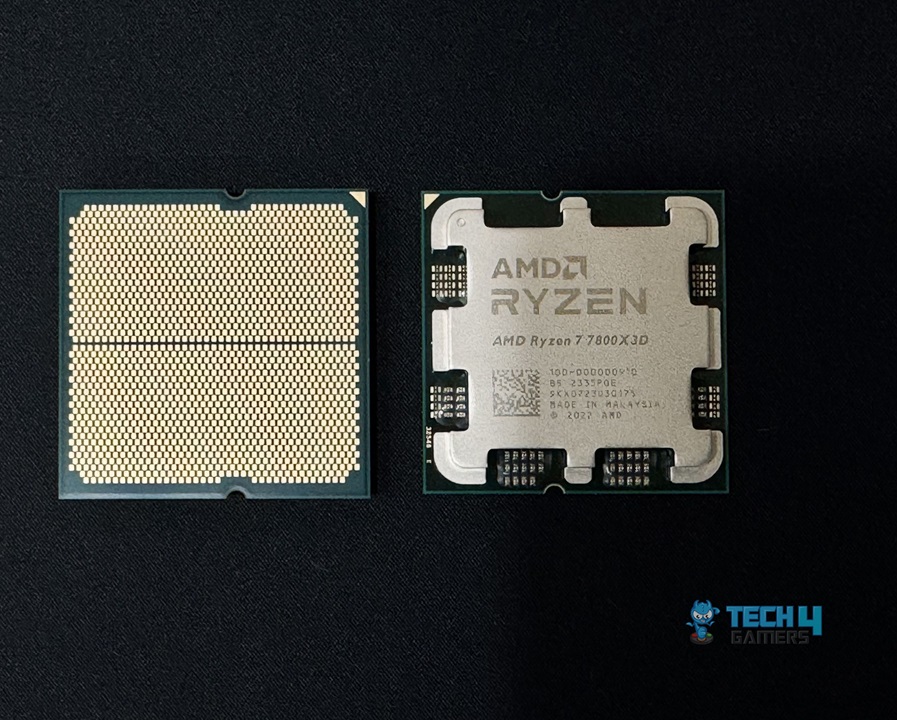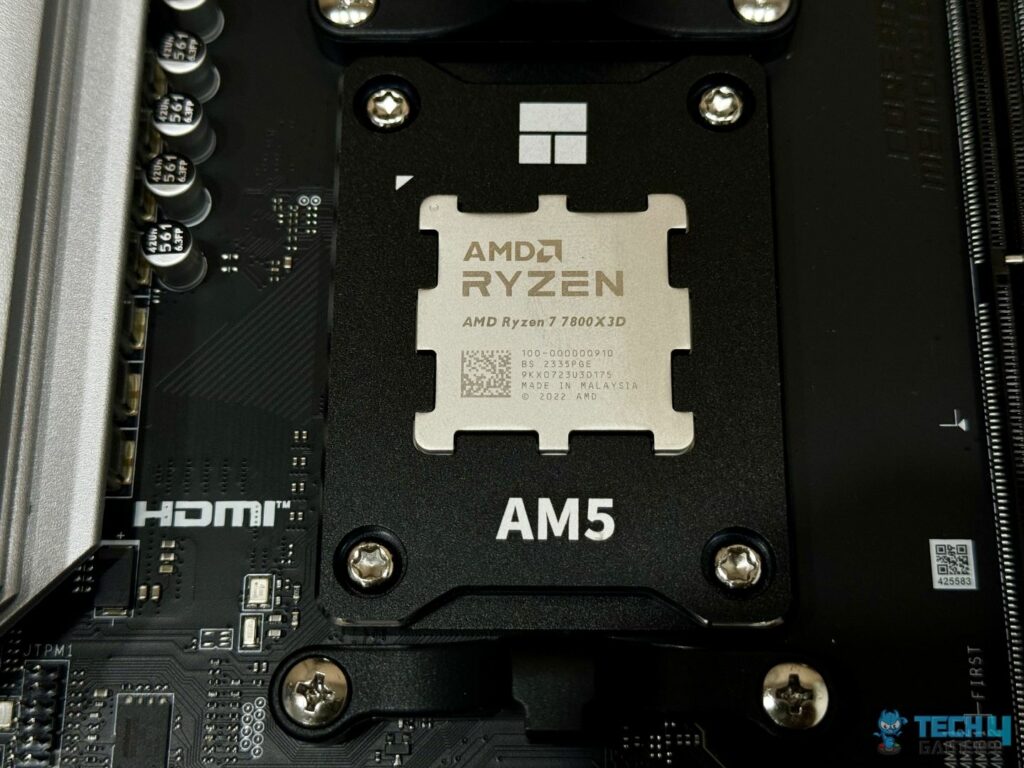AMD has been generating a lot of hype in the tech world with its AMD 9000 processors.
According to AMD’s Senior Technical Marketing Manager of Consumer Processors, Donny Woligroski, the performance gap between the Ryzen 9000 series and the Ryzen 7000 series processors won’t be that big.
He explains that while the core and boost frequencies are similar between both generations, it is still a big step forward.
This isn’t news to us tech enthusiasts as we have seen the X3D chips hold the top spot of the ‘best gaming CPU’ over the competition for quite some time before being dethroned by the newer processors.
Such is the robustness of the 3D V-cache technology, and it’s no secret that the X3D processors have become the obvious choice of many PC builders, both new and old.
The X vs the X3D gaming performance
There is no doubt that the first Ryzen 7 5800X3D is still loved for its performance. And it wasn’t until the release of the Ryzen 7800X3D that the older processor was dethroned from its spot as the best gaming processor in the market.

Likewise, we will see a similar pattern when the newer 9000 series processors are released. However, the performance margins will be slimmer this time around between the non-X3D and the X3D processors.
Furthermore, while they will boost gaming performance, the X3D chips will be able to perform much faster when it comes to productivity loads as well.
Big improvements in the 3D V cache technology
I remember when AMD released their first gen X3D chip, the 5800X3D, and it took the world by storm. AMD had taken a solid lead from the competition to the point that it was setting its benchmarks and breaking them. The competition had no chance at all.

Then, the Ryzen 7 7800X3D was released and became the new king of the hill. It showed 30% faster gaming performance against the fastest Ryzen 7000 series processor. It was phenomenal.
We can expect this pattern to continue with the Ryzen 9000 series processors as well, although, as I mentioned above, the 9000 series processors won’t be beating the 7800X3D, according to information that has been released so far by AMD.
AMD has big plans to improve its 3D V cache technology, and we will see that improvement in the 9000 series when it is launched to the public. They could work with a smaller 6nm or even 5nm node to cram even more L3 cache capacity.
For two generations, AMD has been using a 7nm node to host its L3 cache. They could also work on the thermal constraints on the CPU die and the L3 chipsets, which will allow the X3D chips to perform better in productivity loads.
AMD Ryzen 9000 comes out in July
On the Spec sheet, the core count, cache capacities, and base and boost clocks remain the same. However, the 16% IPC, along with the L1 and L2 bandwidth, along with other improvements, deliver better processors when comparing generational performance.

According to Wologroski:
At the end of the day, we give you more performance without increasing power, and at the end of the day, we give you more performance without increasing the heat. At the end of the day, we bought a non-X3D chip very close to an X3D chip when it comes to gaming.
David Mcafee, the Corporate VP and General Manager of the Client Channel Business at AMD, addressed the press in a pre-Computex keynote that the upcoming Ryzen 9000 series processors also come with better boost design, which means that they will be able to sustain their boost frequencies for a longer period.
Should you buy the Ryzen 9000?
When the chips ship out in July, we will be running our own set of benchmarks on them to see how much truth is there to AMD’s claims. In the past, the claims that they have made about their products, they have usually delivered on them.
But that won’t stop us reviewers from testing the processors extensively to see how well they perform in real-world scenarios, both gaming and productivity loads.
If you are a tech enthusiast who would like to flex the latest technologies, nothing can stop you from heading to the store and getting yourself the new piece of hardware that you can get your hands on.
For others who spend their money more cautiously, wait for the review results and then decide whether the 9000 series is worth spending your valuable money on.
If you ask me, if you are building a new PC from scratch, then sure, go for the newer processors. But if you upgraded to the 7000 series processors recently, you are set to pass this generation, and your PC is future-proof from a processor’s perspective.
If the itch is too strong and you just have to get those processors, then, by all means, go ahead.
Thank you! Please share your positive feedback. 🔋
How could we improve this post? Please Help us. 😔
 Threads
Threads




